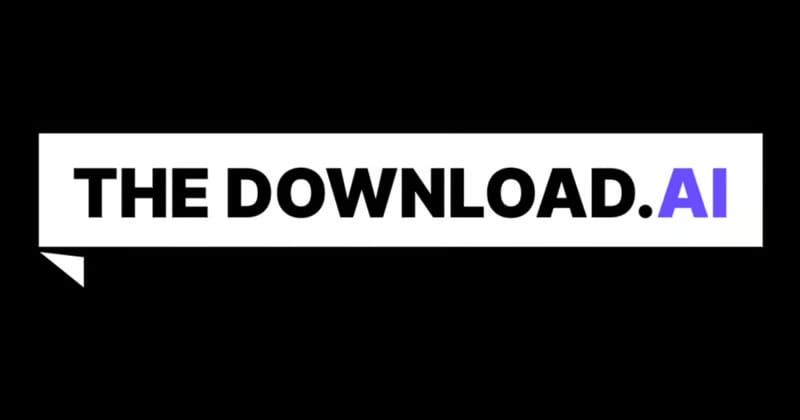- TheDownload.AI
- Posts
- 85th Edition Download
85th Edition Download
OpenAI commits to a $300 billion cloud computing deal with Oracle for its Stargate infrastructure, Box CEO Aaron Levie highlights the importance of context engineering for enterprise AI, and Grammarly expands AI-powered writing support into five new languages.

One Piece of Advice
One of the best pieces of career advice I ever got had nothing to do with resumes, interviews, or networking.
A mentor told me: “Careers aren’t built in straight lines, they’re built in pivots.”
At the time, I hated hearing that.
I wanted certainty. I wanted to know the “right” path. But looking back, every big opportunity in my life came from leaning into the unexpected.
The class I almost didn’t take, the side project that wasn’t supposed to matter, the person I met by accident who ended up changing everything.
So if you’re stressing about the perfect plan, it might not be the best route. Focus on stacking skills, meeting people who energize you, and saying yes to the things that make you curious. The path will zigzag, but that’s where the breakthroughs happen.
- Aidan
This Week in AI:
No jargon, no filler—just the biggest AI developments worth knowing right now. Perfect for quick industry insights, so you can skip the buzzwords and get straight to the good stuff. Let’s dive into this week’s AI shake-ups, just as promised:
This week we see OpenAI locking in a massive compute deal, enterprise software pushing deeper into meaningful context, and productivity tools finally speaking more than one language. It’s the kind of momentum that shows AI is scaling with complexity, expectations, and global reach.
Let’s get into it.
In This Issue:
OpenAI & Oracle: $300B Cloud Bet → Massive five-year computing deal tied to OpenAI’s “Stargate” infrastructure could reshape cloud dependencies.
Box CEO: The Era of Context → Aaron Levie argues AI’s next frontier is not bigger models but better context, especially for unstructured data and enterprise workflows.
Grammarly Goes Multilingual → New support for Spanish, French, Portuguese, German, and Italian lets Grammarly expand beyond English-only writing tools.
TL;DR:
OpenAI signed a reported ~$300 billion cloud-computing contract with Oracle across five years starting in ~2027. The agreement is part of OpenAI’s Stargate infrastructure expansion, involving ~4.5 gigawatts of power capacity, and aims to widen compute capacity massively.
Our Take:
This deal is a strategic leap, but it comes with risk. On one hand, it signals OpenAI’s intention to control its infrastructure scale and avoid compute shortages. On the other, committing to such high costs raises questions: cash flow pressure, energy / operational constraints, and how Oracle will scale to meet demand. For businesses watching the AI infrastructure race, this sets a benchmark: access + reliability = market power. Positioning around stability, supply-chain fidelity, and partnerships will matter more than raw model size.
TL;DR:
Aaron Levie, CEO of Box, is doubling down on what he calls “AI’s era of context.” He emphasizes that much of enterprise AI value will come from handling unstructured data, such as PDFs, slides, design assets, and building agents that deeply understand the domain, instructions, and the right context, not just data quantity.
Our Take:
Foundation models will continue to grow, but value will increasingly tilt toward context engineering, giving models the right input and domain signals. For product teams, that means investing in better metadata, governance, tooling to maintain domain relevance, and perhaps breaking workflows into sub-agents rather than monolithic ones. The firms that do this well will win trust, accuracy, and user satisfaction.
TL;DR:
Grammarly is expanding past English support. Its writing assistant now offers real-time grammar & spelling corrections, paragraph rewrites, plus in-line translation for Spanish, French, Portuguese, German, and Italian. These new features are available across platforms and in beta.
Our Take:
This is more than just adding languages — it reflects increasing demand for tools that work across cultures and global teams. If you're working in any kind of international content, this lowers friction. But also: multilingual expansion injects complexity (tone, idioms, correctness). Grammarly’s bet is that the cost is worth it because many users felt left out before. To compete, tools should think globally from day one.
🚀 Thank you for reading The Download
Your trusted source for the latest AI developments to keep you in the loop, but never overwhelmed. 🙂
*Want to get in front of 600k+ readers? Email [email protected]



Reply